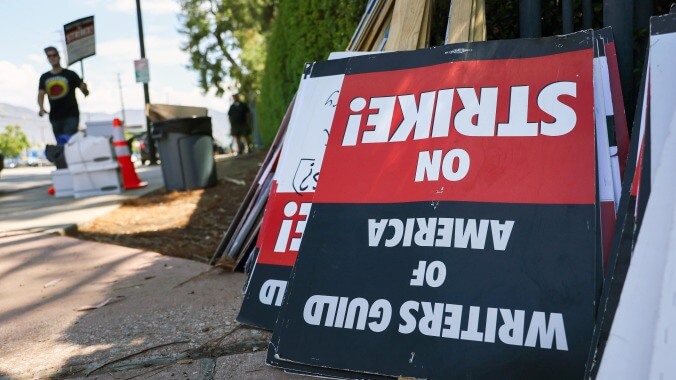Writers, Hollywood studios reach tentative deal to end months-long strike
The Writers Guild of America says they have reached a tentative agreement with the major studios on a three-year contract

After 146 days, the Writers Guild of America has reached a tentative agreement to end their work stoppage against the major Hollywood studios. WGA leadership emailed strike captains Sunday night informing them of the news, saying the agreement was “subject to drafting final contract language.” According to The Hollywood Reporter, the provisional three-year agreement still needs to be ratified by WGA members to take effect. Specifics of the deal have not been publicly shared yet.
Representatives from both the WGA and AMPTP sat down for a series of talks over the past week that seemed to signal a potential end to the nearly five-month stalemate. The meetings were also attended by studio heads Bob Iger (Disney), David Zaslav (Warner Bros. Discovery), Donna Langley (Universal), and Ted Sarandos (Netflix).
“We can say, with great pride, that this deal is exceptional — with meaningful gains and protections for writers in every sector of the membership,” the guild said in the email to membership (via the Los Angeles Times). “What remains now is for our staff to make sure everything we have agreed to is codified in final contract language. And though we are eager to share the details of what has been achieved with you, we cannot do that until the last “i” is dotted. To do so would complicate our ability to finish the job. So, as you have been patient with us before, we ask you to be patient again — one last time.”
According to Puck News’ Matthew Belloni, the WGA governing boards first have to endorse the deal—which will happen on Tuesday, given Monday’s Yom Kippur holiday. It will then take two to three weeks for voting materials to be distributed to the membership, at which point they will vote to approve it.
 Keep scrolling for more great stories.
Keep scrolling for more great stories.
